UU employees will take the streets to protest
‘These austerity measures are shortsighted and anti-intellectual’
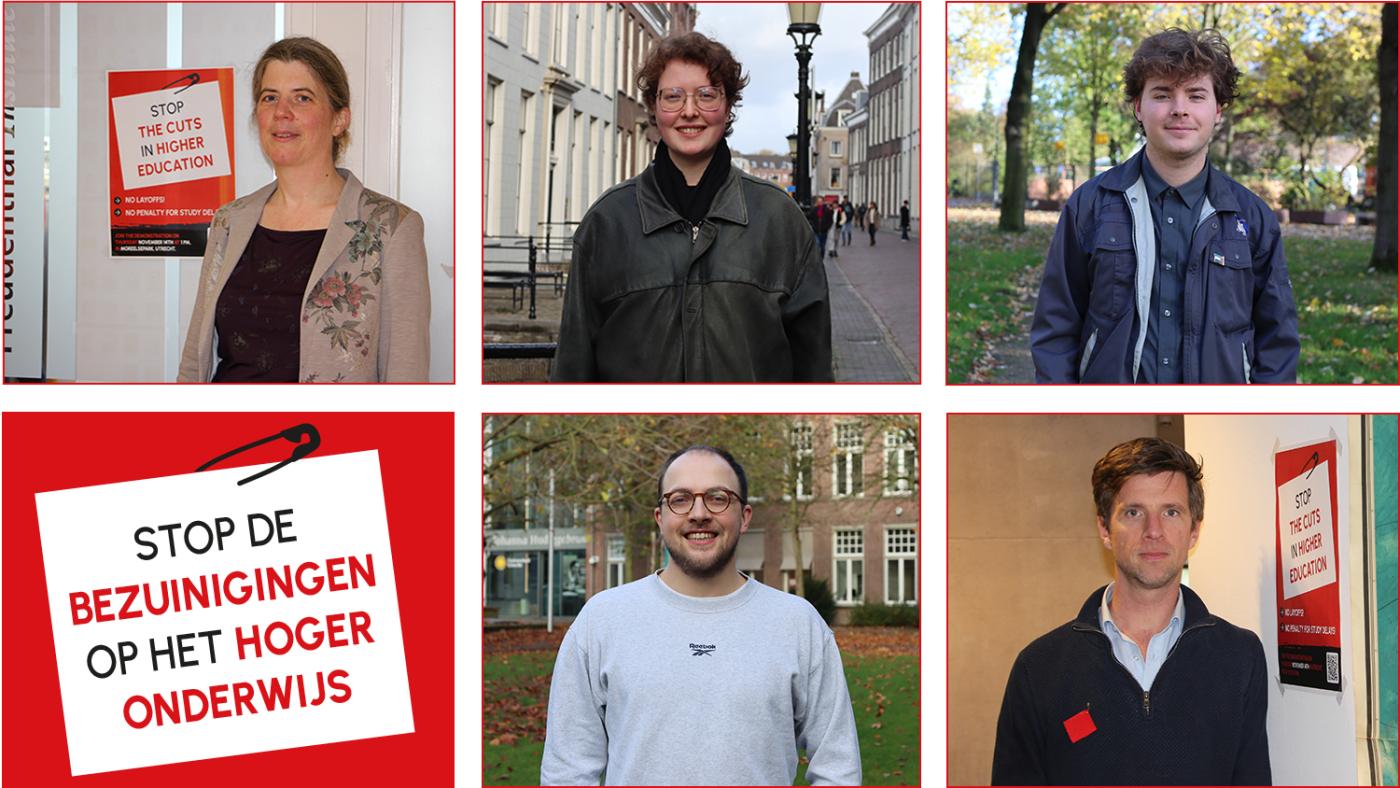
'Bruins pulled the rug out from under us'
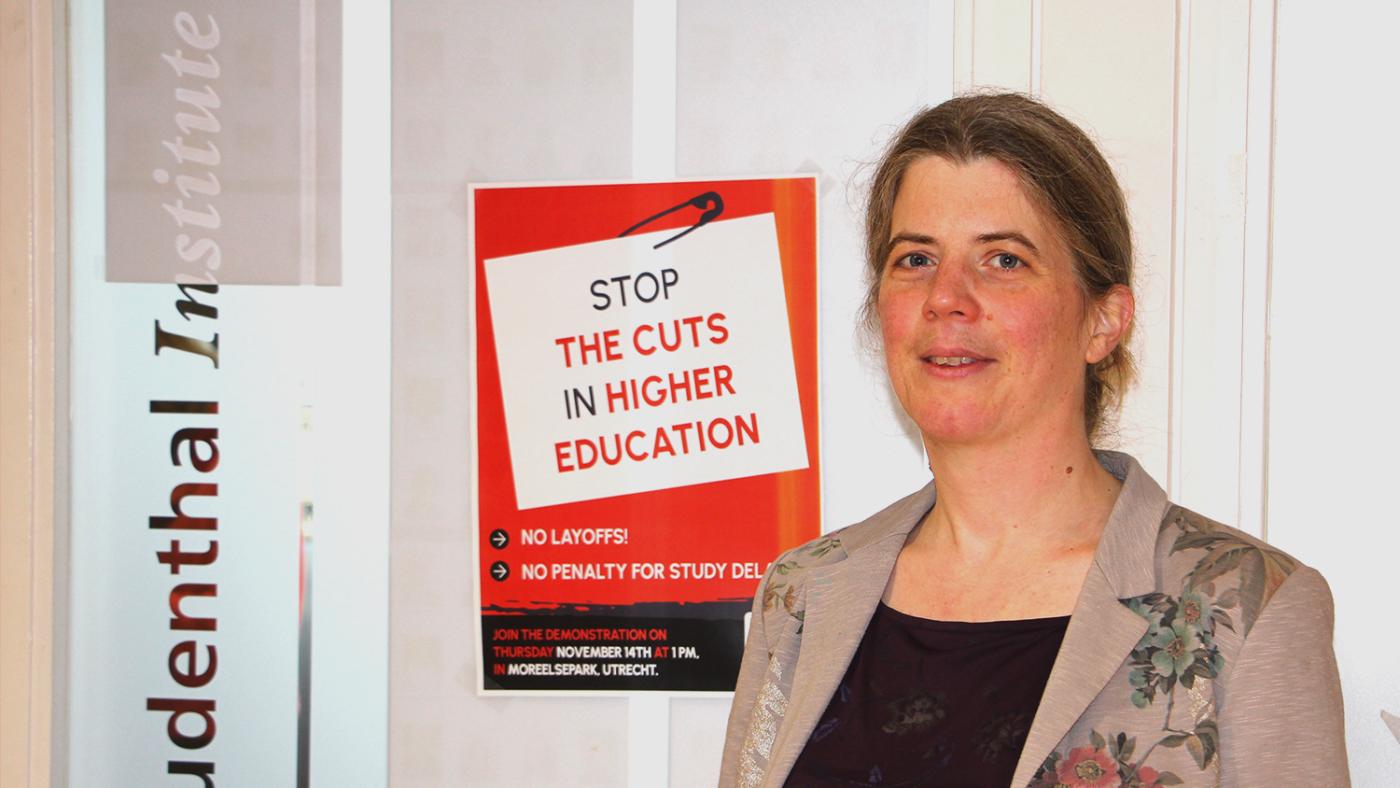
Protester: Hieke Huistra (42)
Occupation: Science historian at the Freudenthal Institute
"I've participated in protests for higher education before. Protests calling for a different academic system or against academics' excessive workload, for example. But these austerity measures affect me more than the other reasons that made me take the streets in the past. After all, the university as an institution is at stake. Its societal role is at stake. It's so difficult and painful to see that the cuts to the higher education and research budgets are accompanied by cuts to culture and public broadcasting, as well as an increase in the VAT tax for culture, sports, books and newspapers. We need research to be an independent critical source of knowledge, education to transmit that knowledge, culture to reflect on things, and journalism to keep power in check. If you start cutting back on all these institutions, that is not good for democracy and the rule of law. For instance, how can you check the claims Minister Faber (Asylum and Migration) uses to substantiate her migration policy?
Our institute deals with scientific literacy: science education, communication, history and philosophy. All those fields are affected by government policies. Financially, we are relatively well off because our institute gets little direct funding from the government and a lot of funding from external parties, but the consequences are no less dramatic. Vacancies are not being filled, which increases everyone's workload. I work closely with humanities scholars, but they don't even get to work anymore due to the cuts. I partly lean on their expertise, so that ultimately affects my work too.
I also worry about our Master's degree in History & Philosophy of Science. Some of our students come from abroad and they represent a valuable collaboration with Dutch students. Will they still come to the Netherlands if all undergraduate courses become Dutch-taught and government policy makes them feel unwelcome here? I also worry about students' well-being and mental health. Some students take longer than a year off due to personal circumstances. A fine for taking longer to graduate will increase their stress.
The university as an institution will survive this cabinet. The question is how. The Minister of Education, Eppo Bruins, pulled the rug out from under us by reversing the additional funding that allowed everyone to exhale. This is bad governance, nothing else. And I am not the only one who thinks so. I had never seen such a willingness to protest among my colleagues. If many people voice their dissent on Thursday, the demonstration will be successful in the short term. Long term, we will consider it successful when the budget cuts are off the table.
My motto ‘everything of value is defenceless’ may not be original, but it does sum up how I feel about the cutbacks."
'Taking money away from education is a frightening thought'
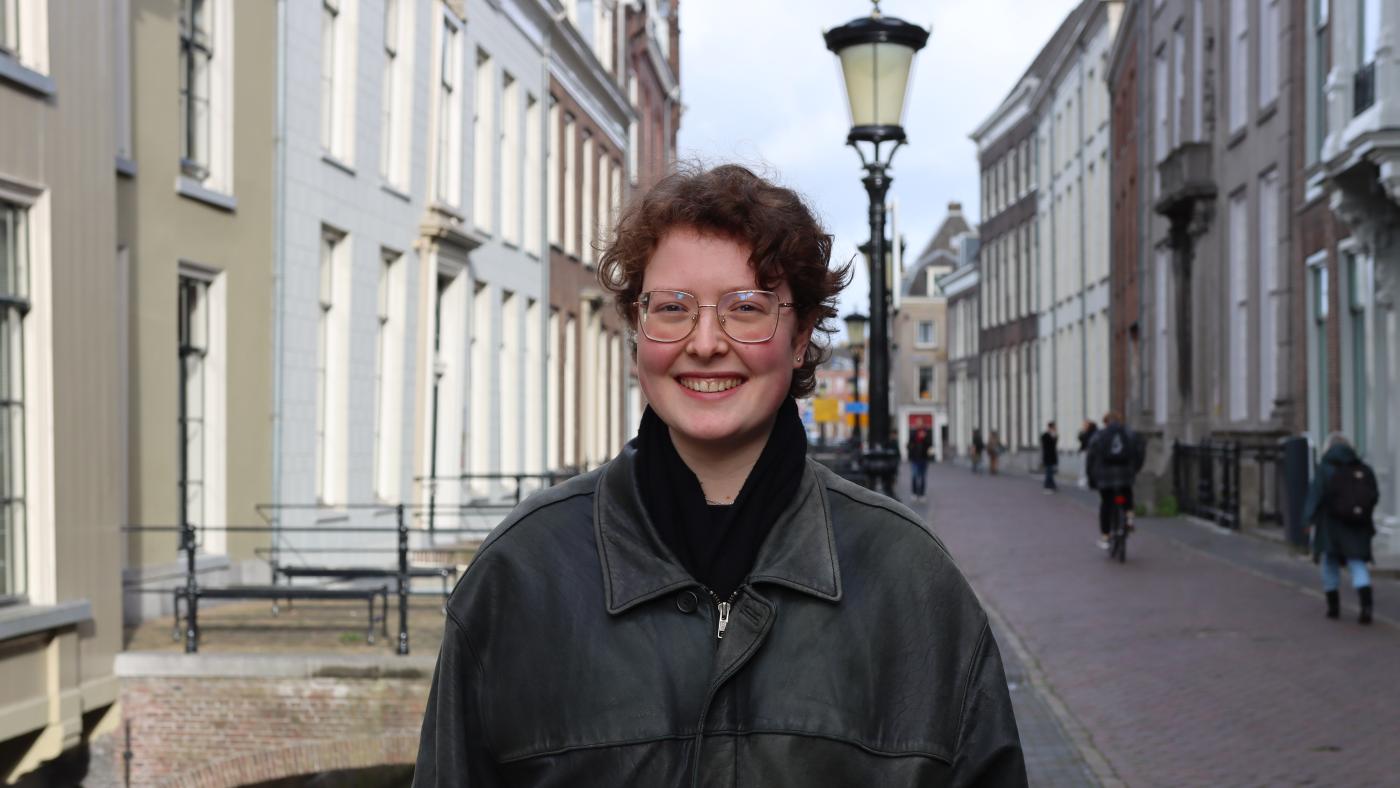
Protester: Daphne Vetulani (20)
Occupation: Third-year Literary Studies student
"I am going to the protest because the cutbacks are bad for education. The austerity measures are reducing the size of the Faculty of Humanities, even though they are very important for our culture. I also find the fine for students who take longer than one additional year to graduate problematic because it makes education less accessible. Taking money away from education is a frightening idea, as education is not an insignificant part of our society. There will be less money available for research, even though we need research to solve our problems. Science is not an isolated world with people reading books.
It's such a shame that the Faculty of Humanities is putting language studies to a halt. The discontinuation of the Celtic programme is a huge loss. When I heard that the Humanities honours programme was also going down the drain, that was the last straw. I was so shocked I decided to join the protest for sure.
I am in the final year of the honours programme. So much is still up in the air. I assume I will be allowed to finish my year, but we haven't been promised that, not yet. This makes me nervous. The honour programme has allowed me to do more than just study Literature Studies, which is not that big of a programme: it only has two specialisations. It has also enabled me to do research differently and collaborate with other disciplines. I am currently applying for a Master's degree and many renowned programmes require you to either graduate cum laude, which is almost impossible, or have an honours degree. UU presents itself as a good university and I think honours programmes are part of that. Especially when other universities ask for them.
I assume that the study association Eureka will also end, now that the Humanities Honours Programme is being discontinued. I'm on their board now. Maybe there are a few passionate students interested in carrying it out for another year, but I don't see how the association can continue to exist without the study for which it was founded."
'These measures will reduce the quality of education'
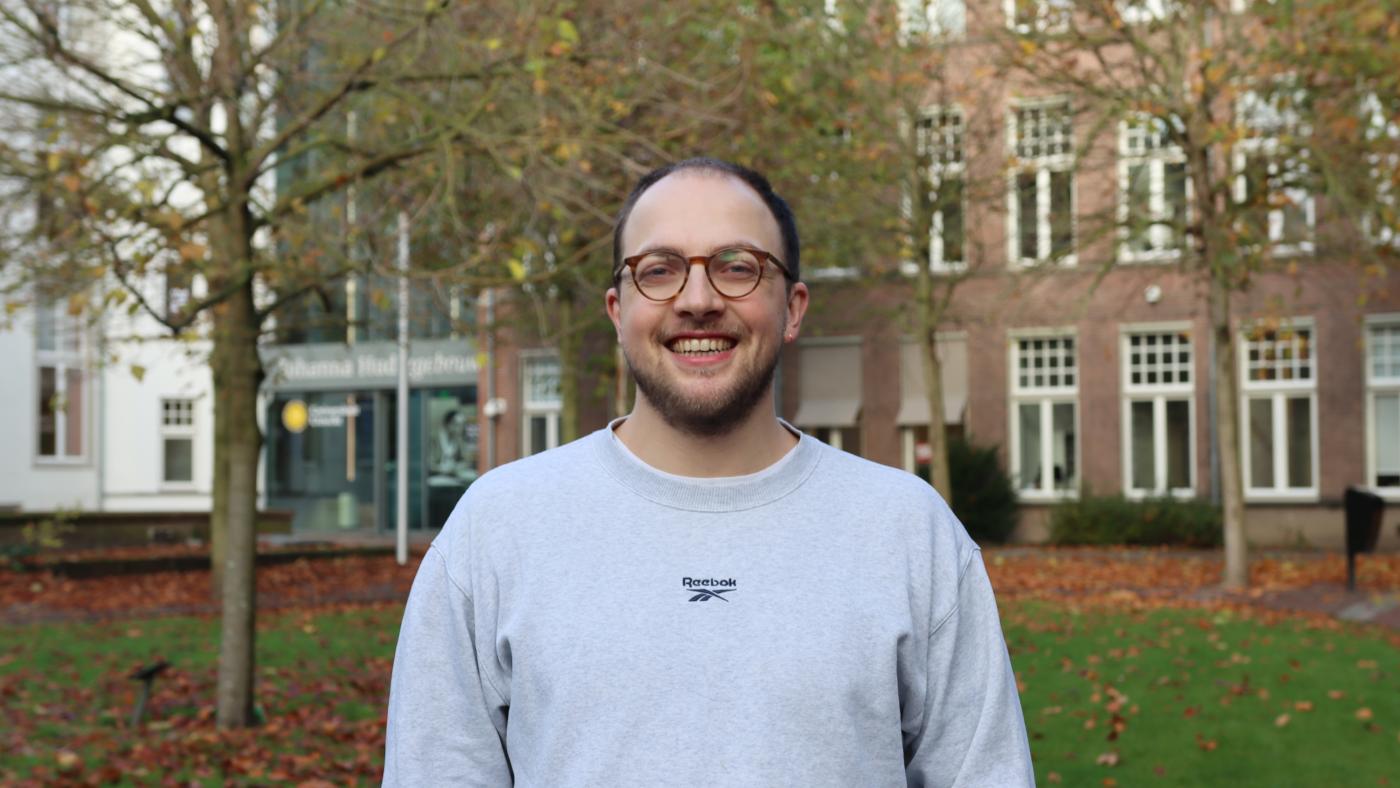
Protester: Willem Mingelen (27)
Occupation: PhD candidate and junior lecturer in Law
"I am joining the protest because the academic community needs to send a strong signal that we do not accept this attack on knowledge and the universities coming from a far-right cabinet. As a legal scholar researching the rule of law, I can only see these budget cuts as a threat to the health of our democracy, of which knowledge is a crucial component. That's exactly why we lawyers must join these protests and make our voices heard.
History shows us that far-right movements perceive the university as a cradle of leftist counter-movements. PVV (Dutch far-right political party, part of the governing coalition, Ed.) turns universities into the enemy by portraying them as places where people only study left-wing topics or gender studies. Delegitimising universities has always been part of far-right movements and it is happening again today. It doesn't matter if you work in the Humanities, the STEM sciences or law: we are all affected.
These measures are undoubtedly motivated by a vindictive agenda. They are short-sighted, anti-intellectual, and not motivated by any knowledge of how the university works. Yet it is important not to see them as an isolated incident. For decades, small programmes have been under attack under the guise of ‘return on investment’ and ‘efficiency’. These cuts are yet another step in this evil trend that is eroding science even further. We are demonstrating against the cuts announced by this particular cabinet, but we must not lose sight of the bigger picture.
These cuts will affect everyone at law school. The workload will increase sharply for all staff and the quality of education will decrease. But, most of all, it will affect our students, who will soon have to pay more for their studies even though they will receive less quality in return. Less money for higher education means less money for researchers and lecturers, therefore fewer office hours, fewer electives, fewer in-depth options, and larger groups.
What I find most distressing about this whole story are the cuts to the Humanities. It is inspiring to see how combative my colleagues from that faculty are. Even if the cuts didn't affect the rest of the university, I would still protest for them.
Our ultimate goal is to reverse the cuts, of course. But it would already be a victory if we showed that the entire academic community, from students to staff, rejects these measures."
'This is pulling the brakes from innovation, which education and research must provide'
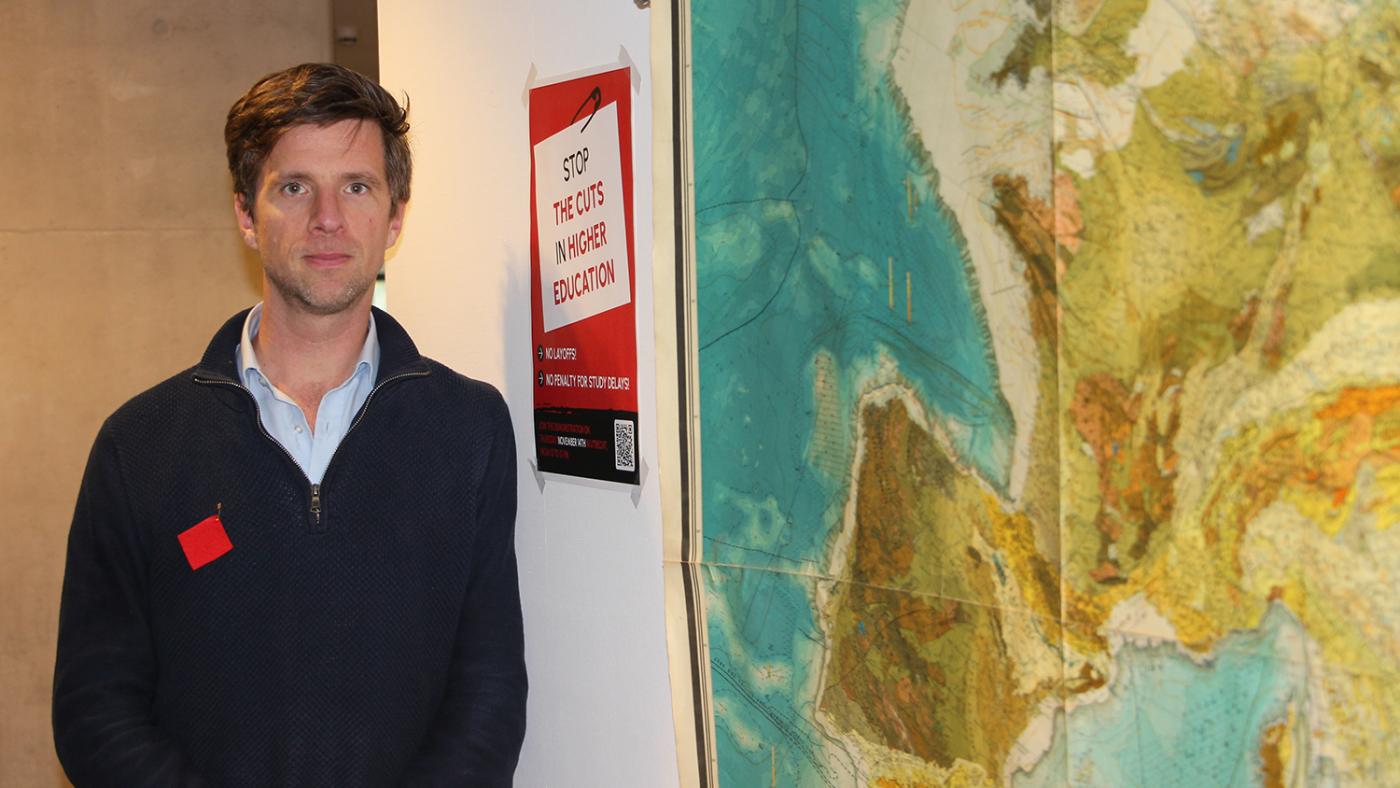
Protester: Peter Bijl (41)
Occupation: Paleoceanographer at the Faculty of Geosciences, lecturer-researcher, and member of the Utrecht Young Academy
"I am going to protest for the first time in my life. I am taking to the streets now for three reasons: first, I am against scrapping small programmes like the Faculty of Humanities is doing now. Secondly, I am worried about the increasing workload the cutbacks will cause. Thirdly, less money means pulling the brakes on the innovative power of the Netherlands, which could provide solutions to several crises.
What is happening at the Faculty of Humanities shows the dark side of these cutbacks. The fact that the faculty is going to axe six small programmes is appalling to me. I am joining the demonstration to support my colleagues in these programmes. Just because a programme is small, it does not mean it is bad or unnecessary. They form a niche.
What strikes me the most about the budget cuts is that our new government says it wants to address crises through innovation, but then it takes money away from education and research, the ones that would provide such innovation.
At my faculty, the situation is not very bleak for now, but we are obviously going to feel these measures. After years of structural underfunding, we finally got more money, which allowed us to hire young colleagues to whom we could give a softer landing than the one we had. For instance, they did not have to write research proposals right away because we already had money available for research thanks to the starting and incentive grants. That will change next year and the amount of work to do will increase again.
In addition, it remains to be seen if there will be enough money to keep paying for our lab's facilities in the future. Without a lab, our research stands still, even though research on climate change and the energy transition is necessary for us to innovate.
I think my protest sign will ask the government: ‘Are you sure?’ Are they sure they want to take so much money away from education and research? On the back, I will write something like ‘back to square one’, but I would still like to ask more experienced protesters what makes a good slogan."
'Unbelievable how fast they are taking money away from students'
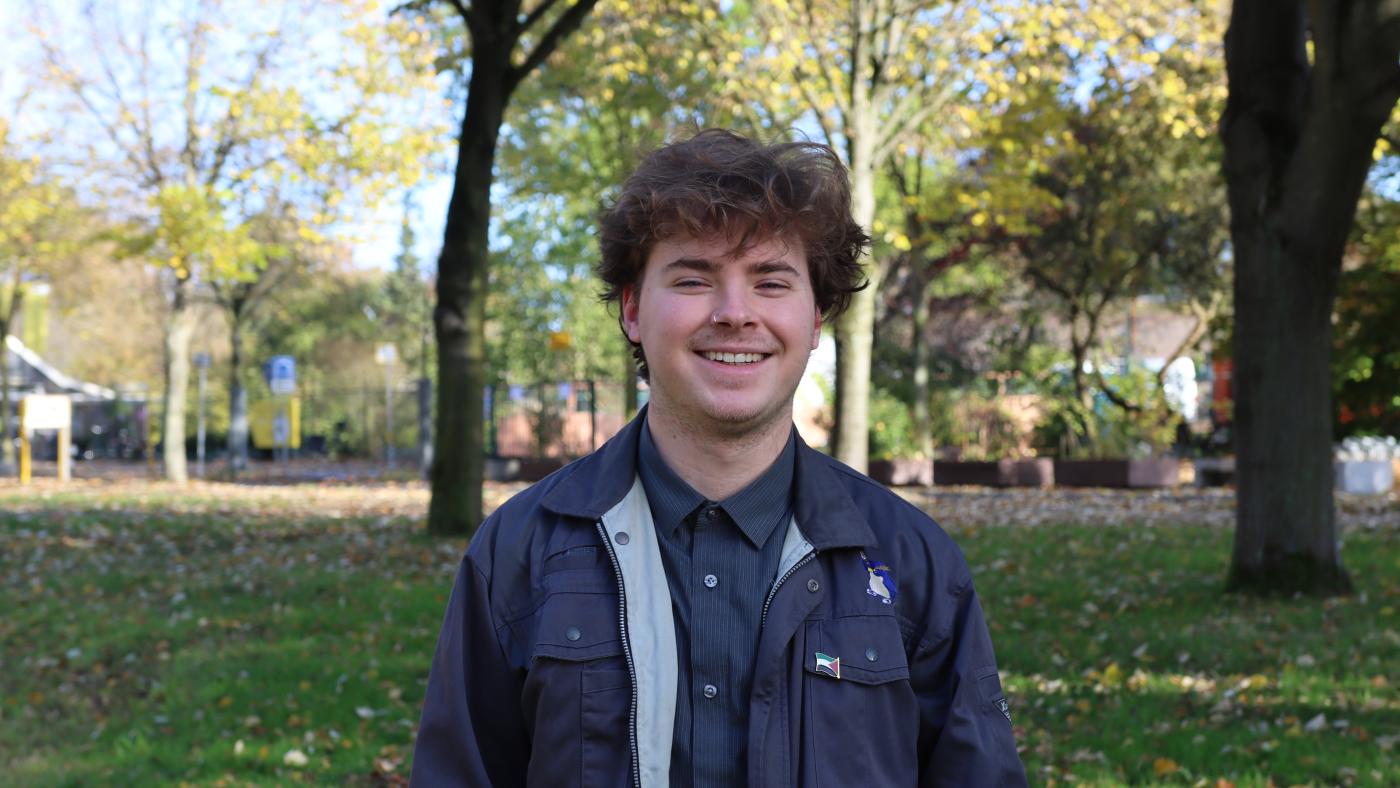
Protester: Tobias de Snoo (22)
Occupation: Third-year Chemistry student who took an additional year to join the board of the study association Proton
"The fine for students who take longer than one additional year to graduate is the main reason I am going to the protest as it affects students very directly. I also don't like the fact that scholarships for early-stage scientists are being discontinued. They are taking money away from sectors like health care and education and investing a lot more money in defence, for example. I don't agree with that. I understand that cuts must be made, but I don't think they necessarily have to do it this way, taking money away from students just like that.
If I manage to graduate next year, I probably won't have to pay the fine, but my successors, who have just joined the board, will (if the fine is introduced in 2026-2027 as they're planning to). The study association and the council of our programme will be affected by the fine too. The study association benefits students' social lives and helps the communication between students and the programme. But it will crumble if students no longer want to join boards or committees because they don't want to risk being fined.
Chemistry is an intensive course. In the first year, you spend up to five days a week studying, of which two and a half days are spent in the laboratory. Students sometimes fail some of these courses because there is just so much to study. I know many students who took four or five years to complete their Bachelor's, and they didn't take longer because they did too little. In general, Chemistry students are very driven.
Although much of the study is paid for by the government, studying at the university level is still pretty expensive for many students. This is partly due to how much we must pay for rent. Students with parents who can afford the fine will not be that bothered by this measure. Students who do not have a lot of money, whose parents can't afford to pay 3,000 euros extra, will be affected the most. They will be forced to graduate on time and I don't think that is the right incentive to get a diploma. Besides, some people just choose the wrong programme. Politicians are basically saying that you must spend the rest of your life working with something that doesn't suit you."
Op-eds by UU employees and students opposing the cutbacks
Several UU employees and students took to DUB and other media outlets to express their disapproval of the government's plans for higher education. In total, the new cabinet wants to take one billion euros away from the sector. At UU, Humanities was the most affected of the faculties, though the others will be forced to tighten their belts too. Some of these op-ds are in Dutch and/or behind a paywall.
Bald de Vries, Professor of Interdisciplinary Law, on DUB: Why we are demonstrating on November 14
Ingrid Robeyns, Professor of Institutional Ethics, on NRC: Hoe zwakker de universiteit, hoe gemakkelijker het kabinet autoritair beleid kan doorvoeren
Maurits de Jongh, lecturer at the Ethics Institute, on Het Parool: Het kabinet slingert een sloopkogel richting het honger onderwijs – en zal die keihard terugkrijgen
Inge Engel, student of Interdisciplinary Social Sciences, on DUB: The fine for delayed graduation is a punishment for failure
Luisa Meroni, Interim head of Italian Language & Culture, and Andrea Gualmini, lecturer in Linguistics, on DUB: What's really at stake in Dutch higher education
Hieke Huistra, science historian at the Freudenthal Institute, on Trouw: De minster herstelt de verhoudingen. Door nóg meer te bezuinigen
Birgit Meyer, Professor of Religious Studies, on DUB: The most radical transformation of the Humanities ever
Joas Wagemakers, Associate Professor of Islam & Arabic, on DUB: Why Islam & Arabic must be preserved
Peter Schrijvers, Professor of Celtics, on NRC: Keltisch en Koreaans schrappen bespaart de universiteit amper geld - het is bestuurlijke stoerdoenerij
Erik Ottenheijm, Associate Professor of Jewish Studies and Biblical studies, on DUB: Humanities' transition plan will lead to monoculture
Wiebe Reints, History graduate, now a researcher at the NIOD Institute for War, Holocaust and Genocide Studies, on Volkskrant: Universiteit Utrecht, draai jullie waarde(n)loze besluit terug